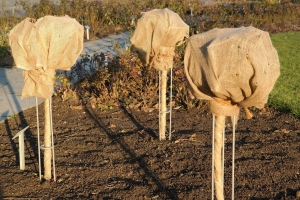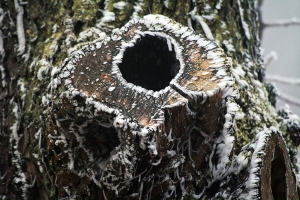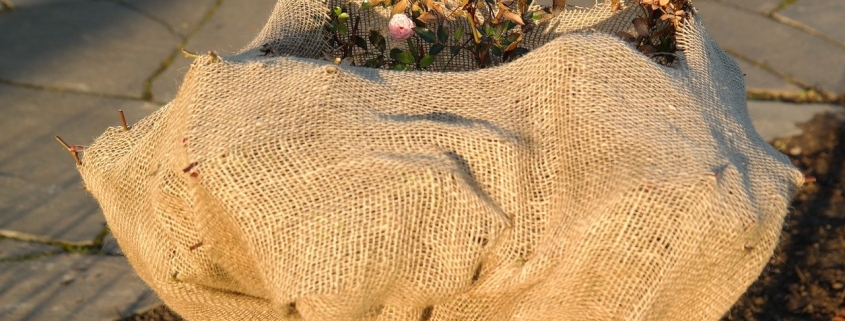Preventing Winter Damage to Your Trees and Shrubs
The trees and shrubs in your yard are similar to people. We both require a certain amount of water, nutrients, and rest to remain healthy and productive. While people require these elements on a daily basis, plants are more seasonal. For example, they sleep each winter instead of daily at night. This dormancy period is just as important to their health as a good night’s sleep is to ours.
Cold isn’t the worst challenge faced by our plants. Shrubs and trees hardy to our region can endure our normal winter temperatures with little trouble. Here is why they need winterizing to help them through their dormancy:

- Cold spells that appear before trees and shrubs have had a chance to harden off for the winter can damage plant tissues.
- Midwinter thaws can send the wrong message to plants, fooling them into coming out of their dormancy too soon only to be damaged when it turns cold again.
- Bark that warms up during the bright sunlight of day can quickly freeze and crack when temperatures drop after dark.
- Deer, mice, and other animals gnaw leaves, bark, and twig as their winter food becomes scarce.
- Frozen soil makes it difficult for trees and shrubs to take up enough water.
Best Ways to Help Your Shrubs and Trees through Winter:
- Don’t prune shrubs past mid-summer because it stimulates new growth which delays dormancy.
- Water plants throughout the fall months (until the ground freezes) so they have adequate moisture to see them through the winter.
- Protect the root system of any young or small plantings by spreading a layer of mulch, straw, or compost to insulate them.
- Wrapping the trunks of young trees up to their first branches helps several challenges – It keeps the trunk warm during temperature fluctuations and keeps critters from chewing on them. Leave wraps on until the last frost has passed.
- Wrap delicate shrubs such a rhododendron with burlap to protect them from wind.
Make this the year you properly and lovingly tuck your landscape into bed for a long winter’s sleep. They’ll be sure to show their gratitude when spring returns.



